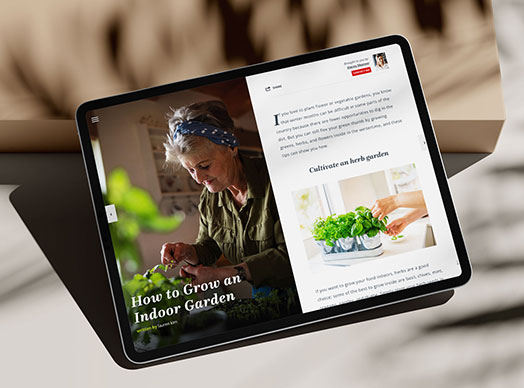Ep 81: Increase Your Income with Gratitude (with Kim Angeli)
Kim Angeli is the founder and president of Grateful Box, a company she started in 2016 after selling her insurance business for 600 percent profit. Her goal is to help salespeople think beyond the transaction, and to encourage people to connect outside of social media.
Today on Stay Paid, Kim reveals how gratitude and focusing on client relationships have changed her life.
Key Points:
- In the age of social media, it’s important to find tangible, “real world” ways to stand out.
- Showing appreciation for your most valued clients will garner you more business.
- In order to leverage those relationships, you need to connect consistently and meaningfully.
Q: Introduce yourself to our audience.
My first job out of college was working in sales for Campbell’s Soup. After that, I moved into selling cellphones. I learned how to keep clients. I helped manage my mom’s birthday card business when I was younger, and that’s something I brought with me into my business life.
When I got laid off by Cisco in April 2001, I took my severance package and built my insurance agency from the ground up. I didn’t want to work for corporate America anymore. The difference between myself and another agent is that the other agent doesn’t stay in touch throughout the year. How are they adding value?
We stood out by sending things like sympathy cards and fruit baskets. One June, I called one of our largest clients and sent an ice cream truck for all their employees. I sent 1,600 birthday cards a year to my client base. We did that kind of thing to let them know that we cared about them beyond the transaction.
Q: Tell us about the creation of Grateful Box.
In 2010, I was having a really crummy year. I’d read books about the importance of building gratitude, but I didn’t have time to do anything about it because I was running a business. I started writing a note every day before I went to bed, and then kept those notes in a box. Over time, that became a moment of positivity every day.
I had the idea for Grateful Box, and bought the domain name in 2010. It just kind of sat in my brain until, one day, my number-one client in insurance asked me what I was going to do about it. She helped me create the actual box, so that we could sell it. I tried to balance running Grateful Box with running my insurance company, and I just couldn’t do both.
Basically, I wanted something that would sit on a desk, outside of social media. It comes with a notepad and a pen, and you fill the box with your notes. I have people who mail these all over the world. People send personalized notes with these, and we mail them out for them.
Q: How can our listeners implement gratitude as a sales and marketing tool within their business?
It’s very important to have a roadmap at the beginning of the year. Many of us go online and buy a fruit basket for our clients. When I went and met with one of my biggest clients, I found out he didn’t get the basket. His employees ate everything. The next year, I had cookies shipped to his home, where they were received by his wife.
The next year, I decided I was going to do a roadmap and touch my client at different times of the year. I wanted to be unique in this very noisy world. I’d send birthday cards and other things so that I’d be remembered. And it worked! I made a couple hundred thousand dollars more that year.
Q: What are some of the other ways you’ve seen gratitude work in your business?
I teach gratitude calls in my business. I script them. I don’t let people push products. We just want to wow the client. We might confirm some of their information, in case we need to reach out later. But we just want to reach out to offer gratitude.
The minute you stick the business card in the thank you note, it’s about business. If you contact your client five times a year, one of those can be about the product. It’s your job to add value, stay top of mind, and thank people. I’ve seen people call and sign up for coaching or for Grateful Boxes after I’ve just sent them a $5 gift card to Starbucks. That wasn’t the intention, but that was the result.
Q: Why do people struggle so much to practice gratitude?
I think people are grateful for their clients in their mind, but they don’t articulate or show it. I could say all day I appreciate my clients, but, if I don’t take action consistently, it doesn’t count. We’re planting the seeds every day of connections and building relationships. But you can’t plant today and eat tomorrow. People panic when they don’t see sales right away. Some of the seeds you plant will grow, and some won’t.
You have to do about five things a day to move your business forward. The farmer goes out there and does things for their crops every day. I plant, water, and nurture the seeds. Some of them grow big—they’re my raving fans. Some are small—they might be my C-list. Some of them can be turned into raving fans. Some people you can’t turn into fans, and you move on.
Q: How would you suggest clients use Grateful Box?
People can go to gratefulbox.com and learn more about the services we offer. We offer coaching and training about how you can work onyour business and not inyour business. In order to get cash flow, you need to have consistent habits. It would be equivalent to me saying I don’t bathe or brush my teeth every day. My coach, Jack Canfield, teaches that you need to do five things every day to move your business forward.
Q: What routines have driven success for you?
My first one is an hour of power in the morning. I journal, and I write gratitude down. I live by my calendar. I don’t let other people steal my time. I have all my Fridays blocked off for the next year.
My responses are always grounded in positive energy. I’ve been that person who’s been preoccupied with fear and worry. The only antidote to those things is gratitude. When you focus on what’s going wrong, more wrong shows up. It’s hard to get business owners out of that. But I just don’t let that negative chatter take up a lot of real estate. I silence it with gratitude. It just shifts your entire life.
Q: What advice would you give to your younger self?
When I was younger, I was really into stuff. I like to say I grew up on the back of a yacht in a cocktail party. My dad was a big boater. I’m a hard worker, but I’ve had this magical life. I would go back and tell myself that it wasn’t about the stuff. I would’ve gone back and nurtured those relationships.
We can’t buy love. We can’t buy happiness. It’s not what you have—it’s how you show up.
Action Items:
- Write down the names of the top 5–10 people who have the most influence on your business. Do something nice for those people.
Connect with Kim:















 Soundcloud
Soundcloud iHeart Radio
iHeart Radio Spotify
Spotify Spotify
Spotify


